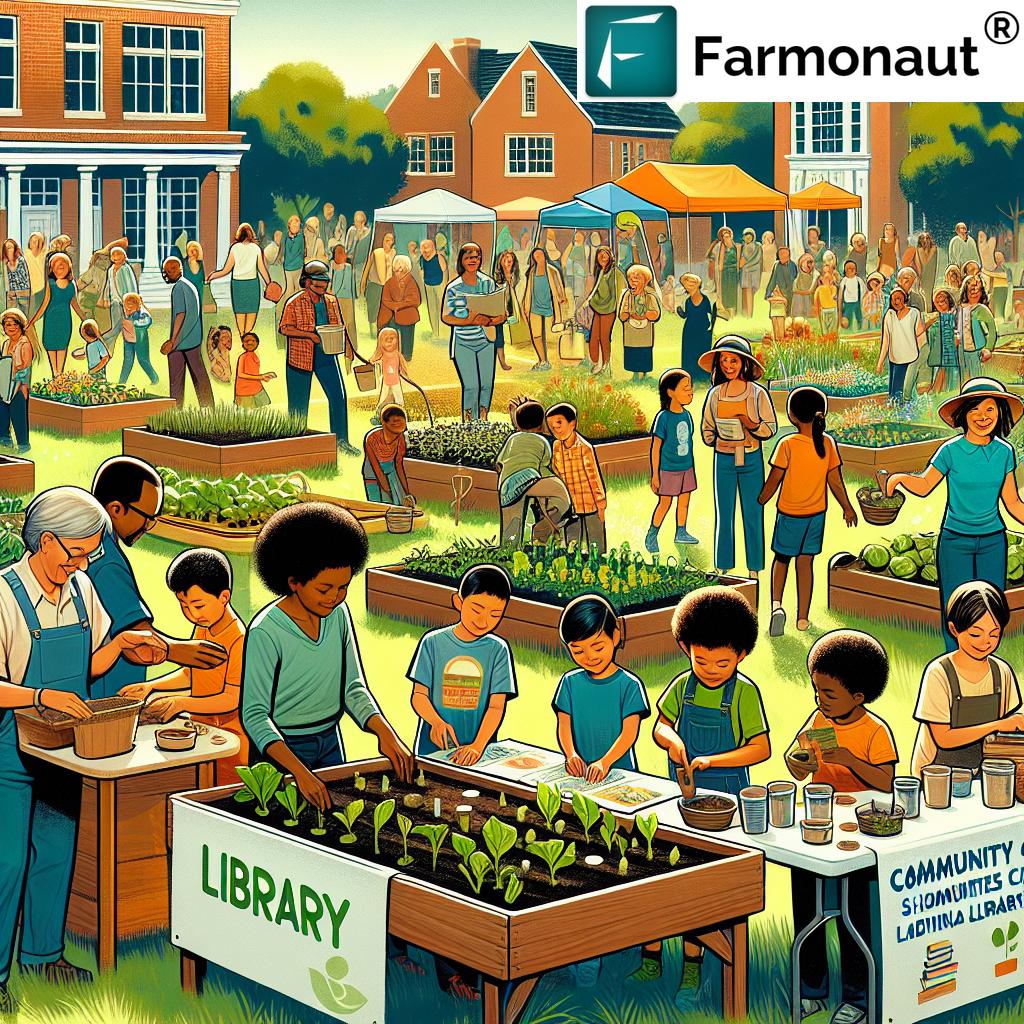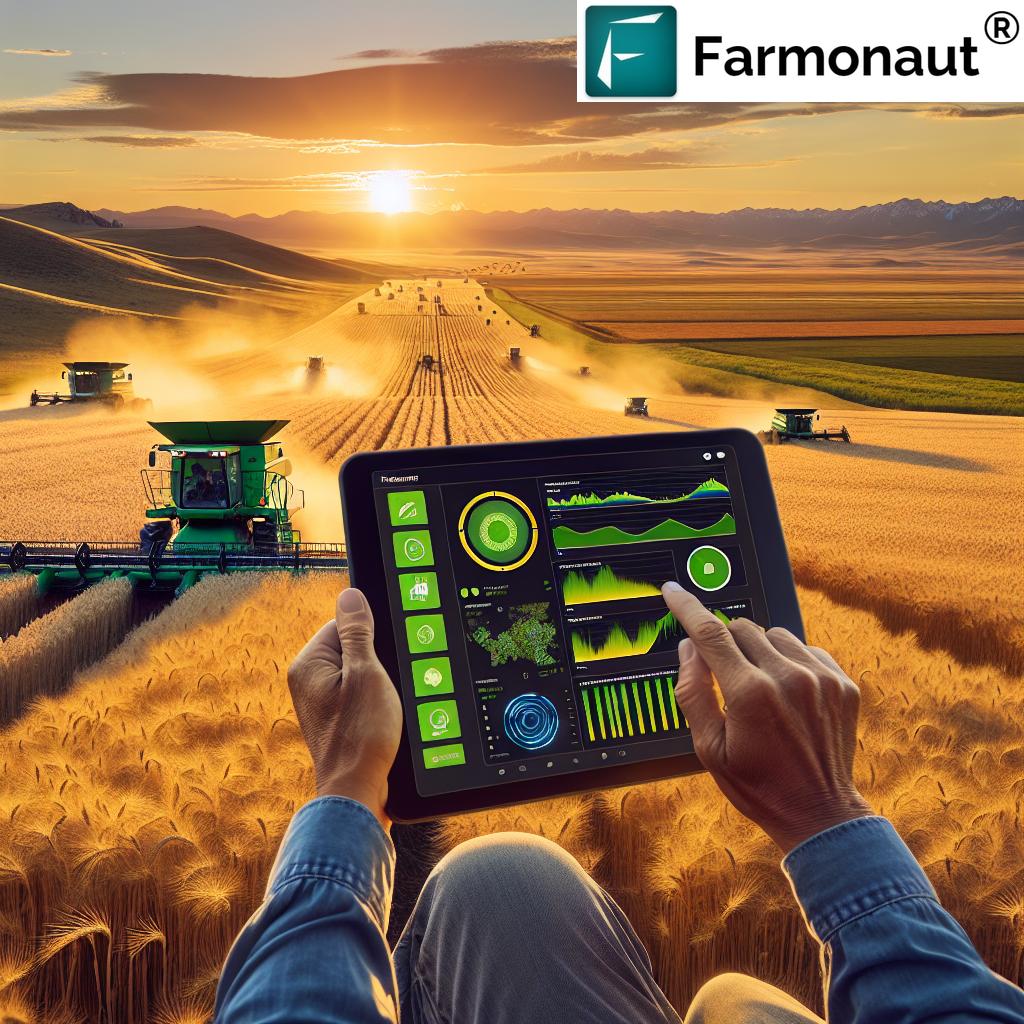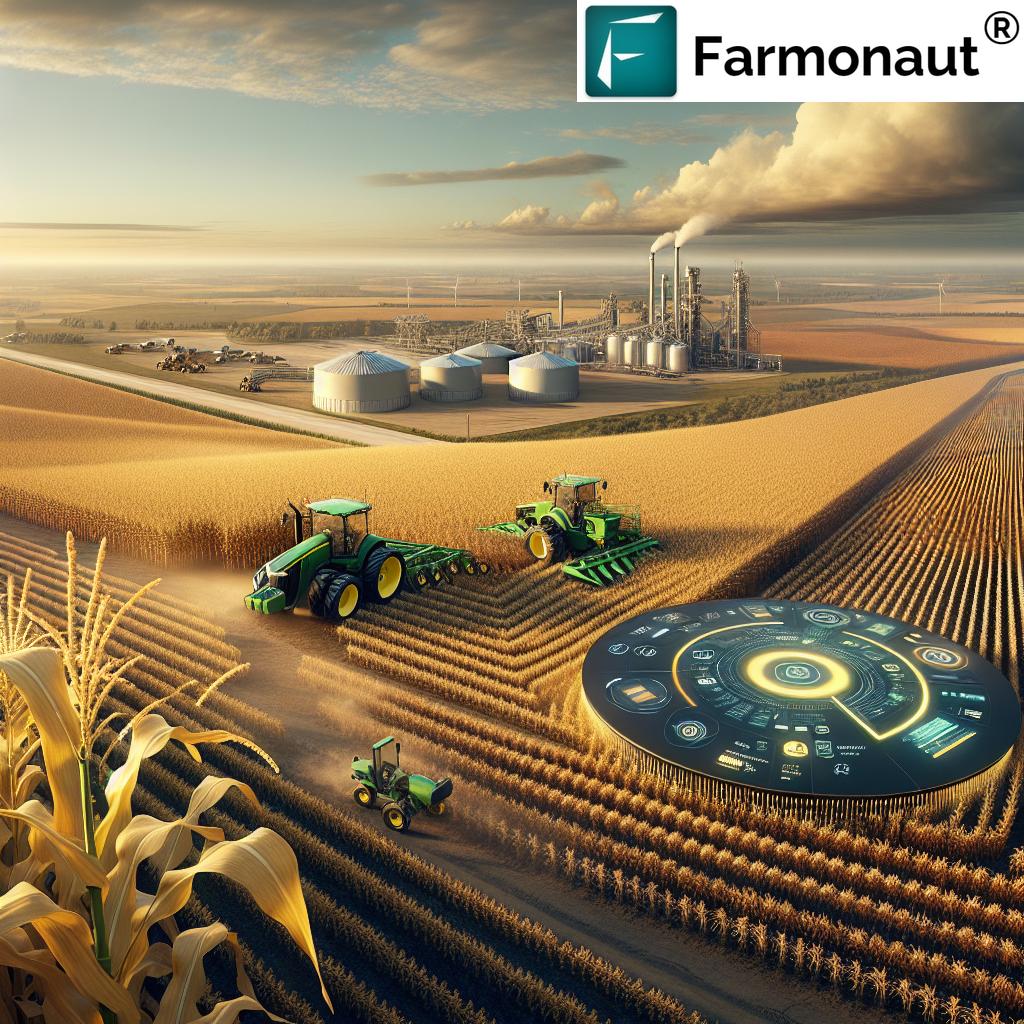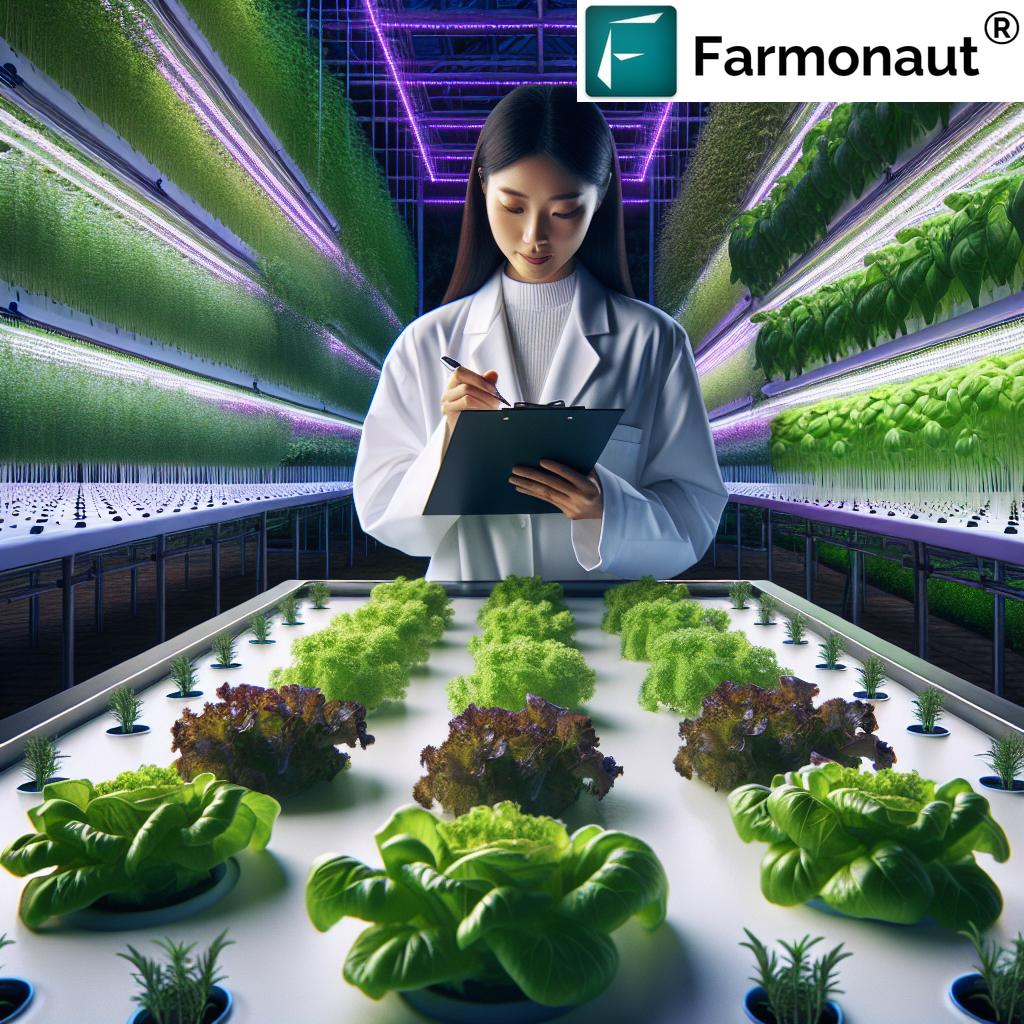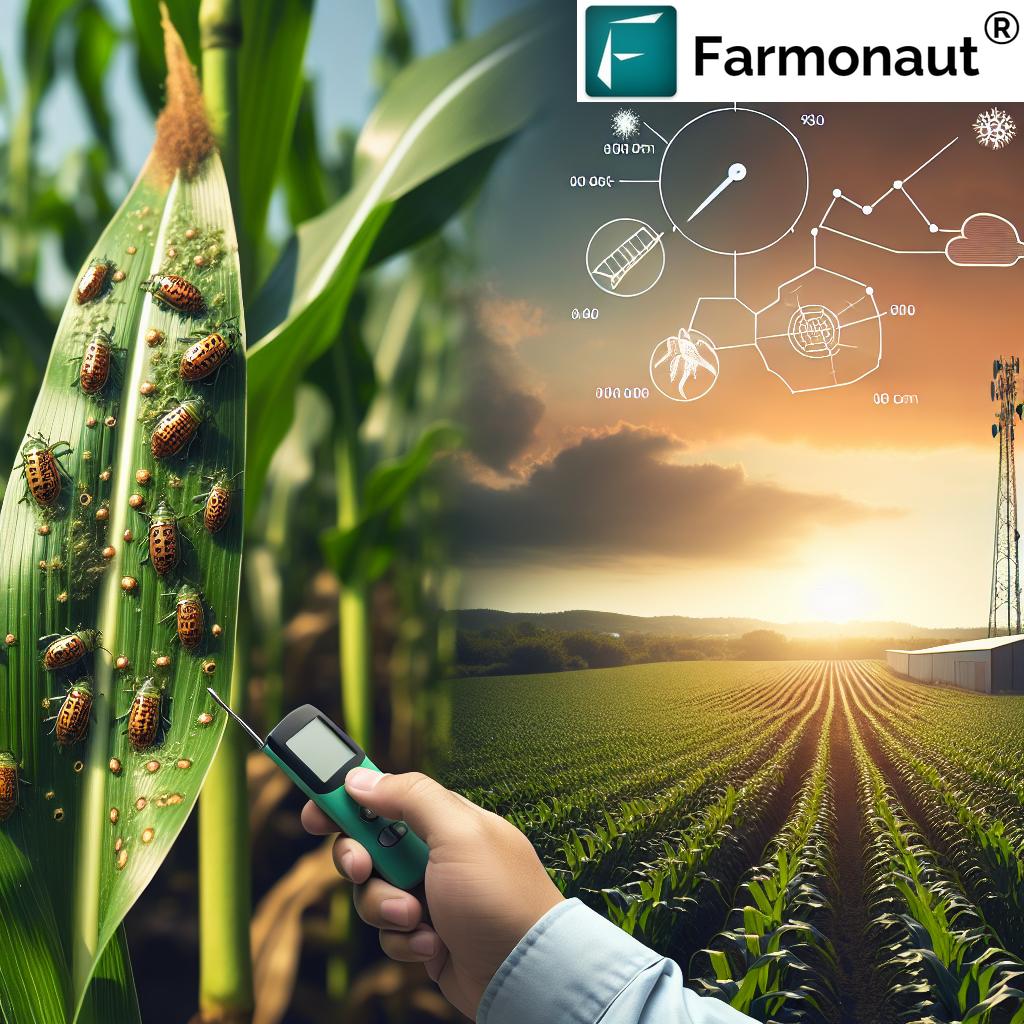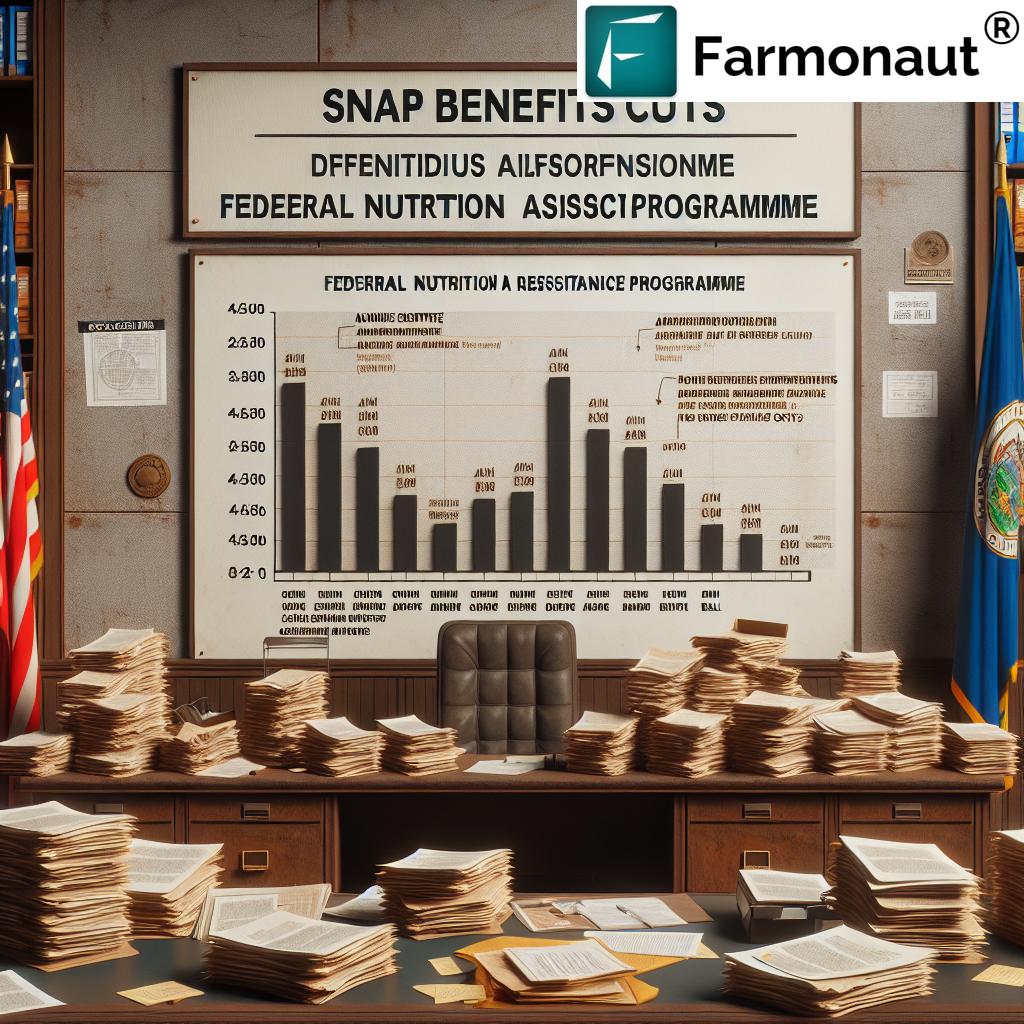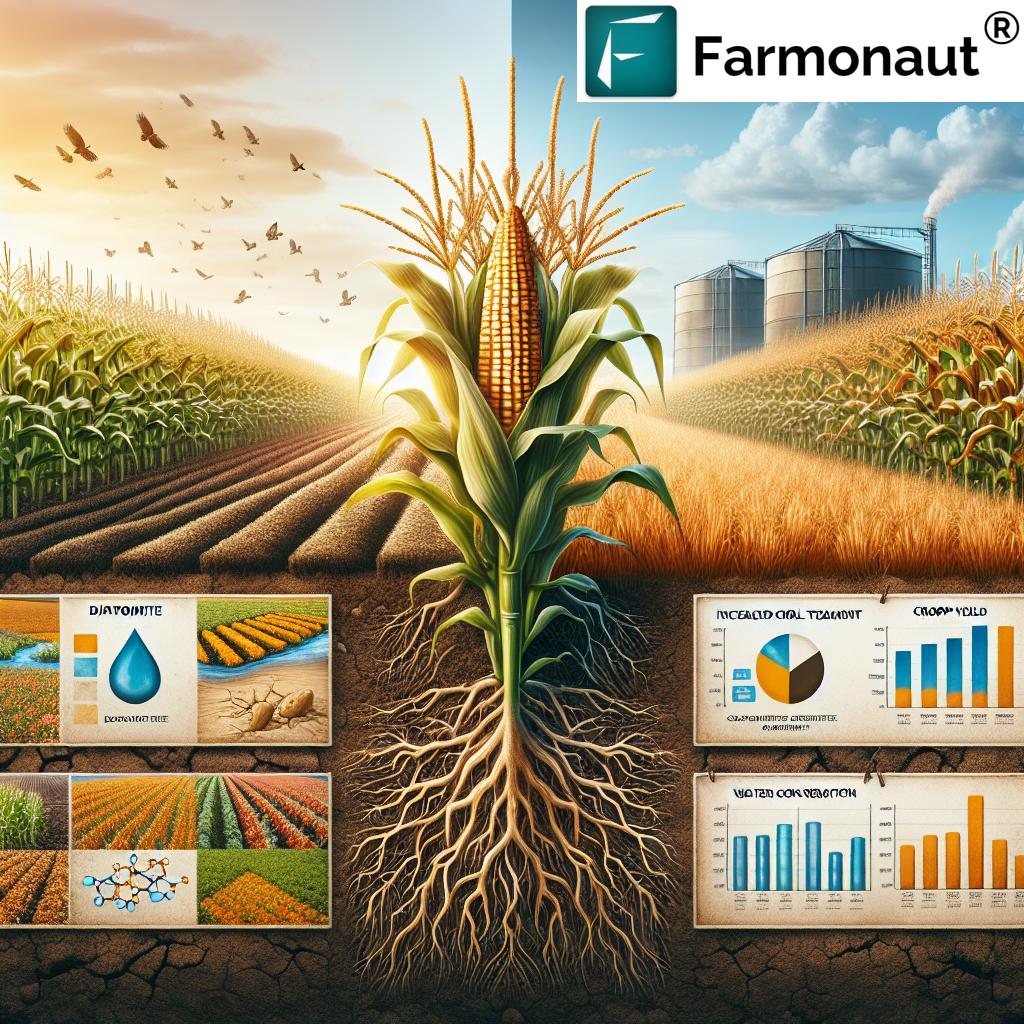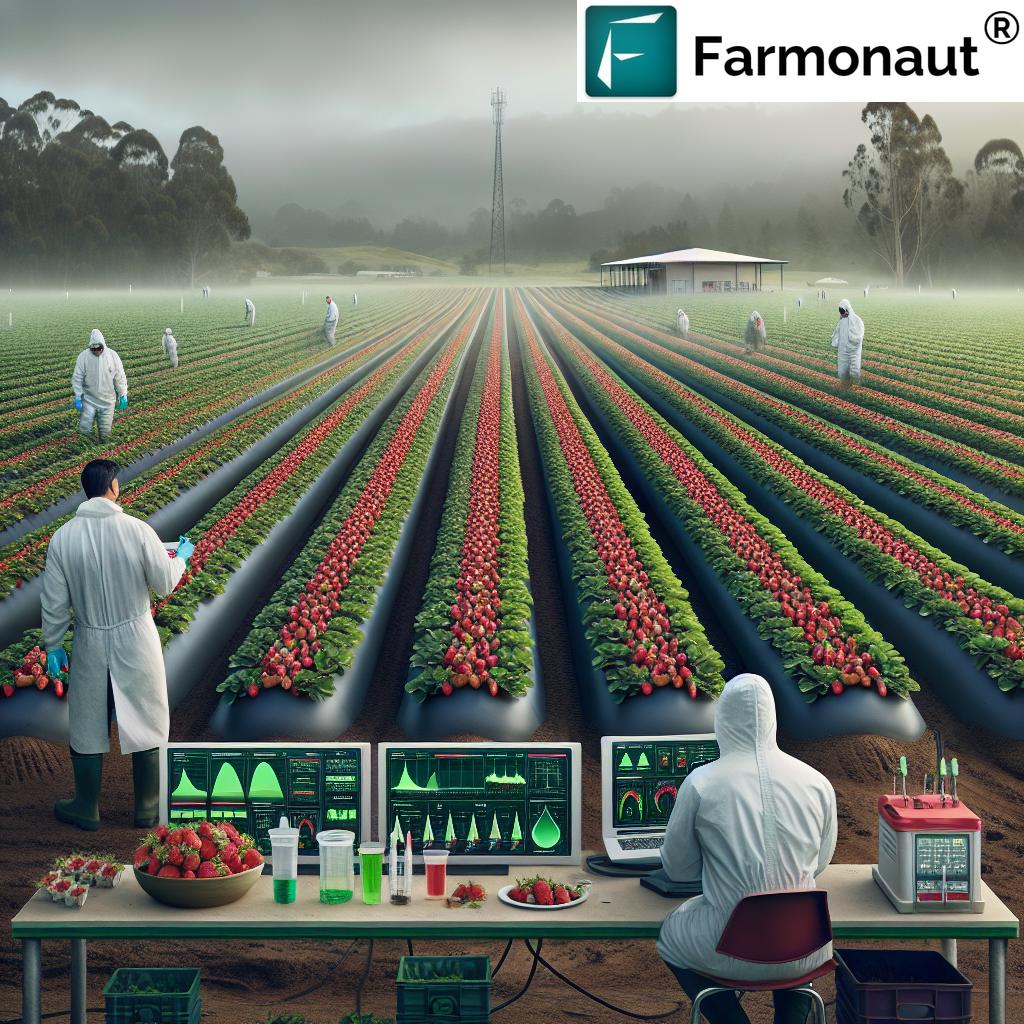Agriculture Education in Virginia: 7 Powerful Ways Kids Learn to Grow
In the heart of Virginia, across vibrant cities, rural counties, and bustling communities, a quiet revolution is blooming in our classrooms. Agriculture education for children is inspiring a new generation to grow—nurturing not only plants and seeds but also curiosity, responsibility, and a profound connection to sustainability. Each March, during the highly anticipated annual Agriculture Literacy Week, over 1,300 dedicated volunteers in Richmond and statewide share stories, lead hands-on activities, and showcase how vital farming is to everyday life.
We believe agriculture education in Virginia holds the key to ensuring our children appreciate where food comes from, understand the importance of farm life, and become champions of the environment. In this comprehensive guide, we’ll explore the seven most powerful, interactive ways young learners across Virginia are being inspired to grow—from elementary school gardening programs and indoor and outdoor farming lessons to club activities and community-wide events. Let’s plant seeds of knowledge together and watch the next crop of agricultural leaders—and environmental stewards—flourish.
Why Agriculture Education in Virginia Matters
Our state stands as one of the nation’s leaders in agriculture, with Virginia farms contributing shape to both local culture and economy. Yet, with urbanization, many children in our elementary schools grow up disconnected from the food on their plates and the environment around them.
- Farming is part of everyday life — but without exposure, children may never connect milk in their glass or cucumbers in their lunchbox to the soil, seeds, and hard work required to grow them.
- Environmental responsibility must start young — teaching kids how to conserve water, nurture healthy soil, and protect natural resources creates future leaders dedicated to sustainability.
- Hands-on learning grows knowledge — interactive methods engage curious minds, offering lessons in biology, math, and social studies within the real-world context of a farm, classroom, or community garden.
- Building bridges between communities — by connecting students, volunteers, local insurance agents, and even public figures (like Richmond’s own first lady, legislature, and FFA members), we cultivate both knowledge and empathy across all corners of Virginia.
This is why Virginia’s commitment to agriculture education for children is so crucial. Let’s dig into the seven transformative ways our youth are learning about farming, sustainability, and community—all from the soil up.
7 Powerful Ways Kids Learn to Grow in Virginia
1. School Gardens: Growing Plants in Schools
Imagine exploring the lifecycle of a seed right outside the elementary school doors—this is the vision behind school gardening programs across Virginia. School gardens serve as living classrooms where children plant, water, nurture, and harvest a variety of plants. They learn the science behind germination, the importance of healthy soil, and even basic nutrition.
- Indoor and outdoor farming lessons are embedded into the curriculum, making gardening accessible year-round and in all weather.
- Planting kits for classrooms often include seeds, soil, and simple instructions, empowering even young gardeners to succeed.
- These programs bolster STEM learning, encourage teamwork, and reinforce environmental stewardship.
As children grow plants in schools, they’re not just learning science—they’re developing patience, responsibility, and a direct connection to the food system. From watching cucumbers sprout to tasting homegrown zucchini, kids experience the magic and challenge of farming right inside their school communities.
2. Farm Visits & County Farm Bureau Programs
There’s nothing quite as powerful as standing in a field, breathing in fresh air, and seeing first-hand how our food is grown. In Virginia, local county Farm Bureaus and insurance agents regularly organize trips to working farms for students—from elementary to high school.
- Children meet farmers, observe livestock, and discover the process of planting, tending, and harvesting crops.
- Q&A sessions with real-world experts allow children to ask about machinery, weather, water use, and sustainable practices.
- These visits help students see farming not just as a job, but as a vital community service shaping our nutrition and economy.
Virginia farming activities like these connect classroom knowledge with the real world, introducing children to agriculture careers, technological advancements (including modern precision agriculture tools), and the values of rural communities.
To further support education, programs like Farmonaut’s large-scale farm management solutions empower
educators and farm managers to efficiently monitor resources, crop health, and logistics. These cutting-edge tools, available through user-friendly web and mobile apps, align perfectly with hands-on lessons about sustainability and resource management in agriculture.
3. Interactive Agriculture Activities & Demonstrations
Interactivity is the heart of agricultural education. During community events like the annual Agriculture Literacy Week in March, volunteer readers (from public figures to insurance agents and club members) bring farming alive with engaging lessons:
- Seed Planting Activities: Children plant cucumber and zucchini seeds in class, then nurture them over weeks—learning daily care, the impact of water and sunlight, and how to identify healthy plants.
- Science Demonstrations: Volunteers use simple models to show soil erosion, the role of pollinators, or how irrigation systems work—often linking to how Farmonaut’s AI-based advisory supports precise water usage and crop care on real farms. Explore more about leveraging AI for farming on our Crop, Plantation & Forest Advisory page.
- Role-Playing Farm Markets: Classrooms transform into mock farmers’ markets, where students trade produce, practice math, and learn about local supply chains.
These interactive agriculture activities not only build practical knowledge; they spark curiosity and inspire a deep-seated respect for farming—and for the people who feed our communities.
4. Community Agricultural Literacy Week
One Book, Thousands of Minds. Each year, an inspiring movement unfolds across the state during Agriculture Literacy Week (March 17-21), orchestrated by Virginia’s Agriculture in the Classroom program. More than 1,300 volunteers from local clubs and organizations fan out to share the Book of the Year with over 77,000 children—reaching both public and private schools and libraries.
- The annual selection, such as Indoor Farm, Outdoor Farm, highlights modern farming, sustainability, and indoor vs. outdoor agriculture methods.
- Volunteers don’t just read—they launch lively discussions, answer student questions, and often introduce hands-on experiments.
- Thousands of copies are donated to library systems, classrooms, and community clubs, ensuring every child has access to agricultural stories.
It’s more than a reading event: it is a pivotal, interactive bridge connecting children with farming, nutrition, and the importance of sustainable food systems. The week sparks curiosity, giving kids the chance to learn directly from farmers, local leaders, and club members.
5. Sustainability & Environmental Workshops
Teaching sustainability is a core component of modern agriculture education. In Virginia, children participate in interactive workshops and classroom units focused on:
- Soil conservation: Understanding the roles of compost, cover crops, and minimal till farming in sustaining healthy farmland.
- Water management: Exploring efficient irrigation, water cycle experiments, and the impact of droughts on farming.
- Recycling and resource use: Learning how farmers—and communities—can minimize waste and protect our environment.
The best programs blend scientific data and real-world context. For example, students can explore how today’s carbon footprint tracking tools help farmers make smart, sustainable choices—empowering kids to measure, track, and reduce their own class “eco-footprint.” By connecting classroom lessons with local farm practices, children grow up with both knowledge and a sense of responsibility for a cleaner, greener Virginia.
Benefits:
- Raises awareness of climate change and agriculture’s role in environmental stewardship
- Instills recycling, composting, and energy-saving habits at a young age
- Prepares students for 21st-century sustainability challenges, both in agriculture and in life
6. Planting Kits for Classrooms & Hands-On Learning
Nothing excites a classroom like a planting kit full of seeds, soil, and promise. Elementary schools and afterschool clubs across Virginia distribute simple kits—often aligned with curriculum standards—to help students:
- Plant traditional crops—like cucumbers, zucchini, beans, or wildflowers—indoors and outdoors
- Track growth with daily “plant diaries” and science journals
- Experiment with soil mix, light exposure, and watering schedules for deeper science learning
Bonus: With these hands-on kits, families are often invited to participate, extending the educational experience into homes and neighborhoods.
These activities reinforce concepts like:
- Biology and environmental cycles
- Math (measuring plant height, graphing results)
- Responsibility and teamwork
In addition to classroom kits, some schools now use smart sensors and digital records—mirroring tools like those provided in Farmonaut’s large-scale agriculture management platform—to chart temperature, humidity, and soil moisture for student experiments. This introduces technological literacy and connects everyday learning to the future of smart, data-driven agriculture.
7. Clubs, 4-H & FFA: Nurturing Future Leaders
Community agricultural literacy doesn’t end at the classroom door. Virginia’s thriving network of clubs, including 4-H and FFA (Future Farmers of America), welcomes students of all ages to deepen their experience through:
- Leadership workshops focused on sustainable agriculture, animal care, and agri-business.
- County fairs, annual events, and local competitions showcasing student projects, from vegetable growing to engineering farm equipment models.
- Community food drives, garden installations, and support for local food banks—teaching both responsibility and compassion.
4-H and FFA members become role models and mentors, passing along lessons in agriculture, sustainability, and teamwork. In many counties, these clubs drive annual agriculture events in Virginia, helping nurture a love of farming and food systems in generations to come.
Interactive Learning Activities Impact Table
| Activity Name | Estimated Age Group | Learning Outcome | Community Involvement Level | Estimated Classroom Reach (No. of Students) |
|---|---|---|---|---|
| School Gardens | 5-12 | Plant science, nutrition, environmental stewardship | High (teachers, volunteers, families) | 18,000+ |
| Farm Visits | 7-16 | Farm operations, food systems, agricultural careers | Moderate-High (farmers, insurance agents, clubs) | 7,000+ |
| Interactive Agriculture Activities | 5-14 | Science concepts, resource management, curiosity | High (community leaders, teachers) | 15,000+ |
| Literacy Week Reading Events | 5-13 | Reading comprehension, agriculture literacy | Very High (volunteers, public officials) | 77,000+ |
| Sustainability Workshops | 8-16 | Eco-literacy, climate awareness, conservation habits | Moderate (club members, educators) | 10,000+ |
| Planting Kits for Classrooms | 5-12 | Hands-on science, responsibility, observation skills | High (teachers, families) | 14,000+ |
| Clubs & FFA, 4-H | 8-18 | Leadership, project management, agricultural skills | Very High (county, state club systems) | 16,000+ |
Technology’s Role: How Farmonaut Inspires Smart Agriculture
As we nurture the next generation of Virginia farmers and community leaders, technology plays an ever-increasing role. Today’s agriculture is more interactive and data-driven than ever, and companies like Farmonaut are paving the way for smarter, more sustainable practices.
- Satellite-Based Crop Health Monitoring: Farmonaut leverages multispectral satellite imagery to monitor vegetation health, soil moisture, and crop status. By providing real-time data on farm conditions, we help educators, students, and farmers understand how environmental factors impact agriculture—and how technology can optimize water use, fertilizer application, and much more.
- Jeevn AI Advisory System: Our AI platform analyzes satellite data and weather trends to offer personalized advice to farmers. Students learning in Virginia classrooms can explore how machine learning and expert systems drive precision decisions on modern farms.
- Blockchain-Based Traceability: With blockchain product traceability solutions, children and educators can see how each stage of food’s journey—from seed to store—remains transparent, secure, and sustainable. This boosts both food safety and trust in local supply chains.
- Fleet & Resource Management: Our platform supports efficient management of agricultural vehicles and tools—lessening environmental impact by reducing fuel waste and optimizing operations, which educators can highlight when discussing sustainability in agriculture.
- Carbon Footprinting: Farmonaut further empowers schools and farms to monitor, reduce, and learn about their carbon footprint. This aligns with environmental education, helping students calculate emissions related to classroom gardens, field trips, or annual community farming events.
By integrating tools like these into lessons, school gardening programs, and field trips, we inspire students to see the future of farming—and their role in feeding and sustaining our communities.
Ready to explore Farmonaut’s platform? With both web and mobile app solutions, our technology is accessible, affordable, and designed to empower everyone from small school gardens to large county farms. Discover real-time data, satellite monitoring, and AI insights:
Start exploring with Farmonaut here.
Want direct access to our API? Check out our API for weather data, satellite crop monitoring, and more—or view the API developer documentation for integration guidelines.
Resources & Support for Virginia Agriculture Education
The ecosystem supporting agriculture education for children in Virginia is rich and growing. From public and private schools to state agencies, libraries, and community clubs, all play a pivotal part in spreading agricultural knowledge.
- Virginia Agriculture in the Classroom: Offers annual teacher workshops, curriculum resources, and direct grants for classroom gardening supplies.
- Annual Agriculture Literacy Week: Learn how you can participate as a volunteer, educator, or donor at virginia.agclassroom.org.
- Public, Private, and County Libraries: Receive thousands of new agriculture-themed books annually, expanding access to children across diverse communities.
- School Districts & County Farm Bureaus: Provide field trips, insurance support, and sponsor programs aligning indoor and outdoor agriculture education with the curriculum.
- FFA and 4-H Clubs: Built-in leadership and project-based learning opportunities to supplement formal education.
- Technology Providers (like Farmonaut): Real-time, affordable precision agriculture solutions for farm managers and classroom programs, supporting integration of data, monitoring, and actionable insights into day-to-day teaching.
Interested in making agriculture education more interactive in your community? Download the Farmonaut app for seamless, real-time access to agricultural data, crop insights, and classroom monitoring tools—directly from your mobile device.
FAQ: Agriculture Education for Children in Virginia
How can I bring interactive agriculture activities to my school?
Start by connecting with your local county Farm Bureau, Agriculture in the Classroom program, or school administration. Many organizations offer free workshops, planting kits, and volunteer readers for elementary classrooms.
Are there resources for schools without outdoor space?
Absolutely! Indoor farming lessons using planting trays, grow lights, and hydroponic kits make agriculture accessible in any environment. Farmonaut also offers digital crop health monitoring and classroom data solutions for all school types.
How does agriculture education support sustainability?
By teaching water conservation, resource management, and eco-friendly practices, agriculture education supports environmental stewardship. Programs like Farmonaut’s carbon footprint tracking also make it easy to connect learning with real-world climate solutions.
Why is it important to teach children about farming?
Farming knowledge builds respect for food, work, and nature—while encouraging healthier choices, deeper curiosity, and future career pathways in agriculture, science, and sustainability.
How can families participate in school agriculture programs?
Many programs encourage at-home gardening, school garden volunteering, and participation in annual events. Contact your school or county Extension office for upcoming opportunities!
Is there technology available to support school agriculture initiatives?
Yes! Tools like Farmonaut’s web and mobile platforms provide crop monitoring, advisory insights, and resource management—empowering educators, students, and families alike. Explore more on the Farmonaut App platform.
Where can I find agriculture-themed reading materials for my class?
Check with public and private library systems, as well as the Virginia Agriculture in the Classroom program for annual book donations and suggested reading lists covering farming, sustainability, and environmental science.
Conclusion: Growing the Next Generation of Agriculture Leaders
By weaving interactive agriculture education into the fabric of Virginia’s classrooms, we plant seeds that will flourish for a lifetime. From nurturing tomato plants in school gardens to participating in vibrant annual events, every child is empowered to grow—with the knowledge, skills, and environmental values needed to shape our world.
As we journey together—local educators, families, volunteers, county leaders, and innovators like Farmonaut—we inspire a future where sustainability, technology, and tradition prosper side by side. Let’s continue to support agriculture education for children, raising the next generation to love the land, respect resources, and lead their communities forward.
Ready for more? Download the Farmonaut App to bring crop monitoring and interactive smart farming to your classroom or school garden. Let’s help our children grow—today and for generations to come.


